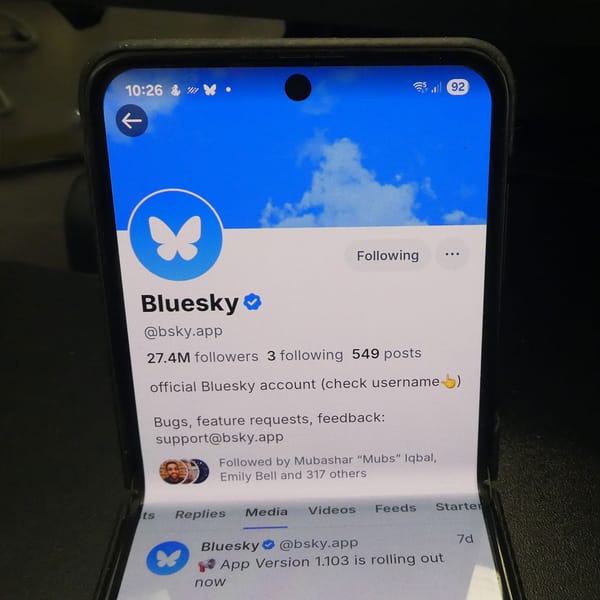There’s been a flurry of commentary lately suggesting that Bluesky is on the decline. Depending on who you read, it’s being written off as a left-leaning echo chamber, a humourless haven for hall monitors, or simply a platform that’s failing to find its place in a post-Twitter world.
Even Mark Cuban, who financially backed Skylight (a video app built on Bluesky’s underlying tech), recently aired frustrations about the tone of replies on the platform. Elon Musk, never one to shy away from a provocation, chimed in too, calling Bluesky users “super judgy hall monitors”.
It’s an easy narrative to latch onto: a once-promising alternative to X, now apparently bogged down in its own ideals.
But this kind of backlash, as TechCrunch’s Sarah Perez argues, overlooks the broader story entirely.
More than Just an App
Bluesky isn’t just an app. It’s a protocol – a foundation for building a decentralised, interoperable social web. The Bluesky app we all see is only one client built on this open standard (called the AT Protocol). And if you don’t like the tone of that client, you can change feeds, use another app, or build one yourself.
That’s already happening. For example:
- Blacksky caters to the Black online community.
- Gander Social serves Canadian users.
- Surf and Graze let people build and follow topic-specific feeds, from gaming to gardening, sidestepping the usual algorithmic noise.
It’s not just about social updates, either. Apps built on the AT Protocol now cover blogging, video, livestreaming, and even mixed-feed aggregators like Openvibe, which combine Bluesky posts with content from Threads, Mastodon, and elsewhere.
A Communication Challenge – and a Reality Check
The criticism that Bluesky is becoming too partisan or too niche may reflect a deeper issue: the platform hasn’t clearly communicated what it is. Without a stronger narrative from the team behind it, people will compare it to X and see only what’s in front of them, rather than the ecosystem it’s enabling.
But here’s the reality: X is still the predominant mass-communication network. Despite waves of dissatisfaction, Elon Musk’s platform continues to dominate global discourse – from breaking news to political sparring, from memes to marketing. For all the noise about alternatives, no one has made a compelling enough case to prompt a true mass migration away from X.
That doesn't mean the effort is wasted. Far from it. It just means that Bluesky – and other open web projects – face the uphill task of building not just a better app, but a better system. One that offers more control, less manipulation, and meaningful choice.
With over 36 million users and a growing library of apps and tools, Bluesky is clearly not disappearing. But if it wants to move beyond being “Twitter for liberals”, it needs to articulate its real value: a decentralised social web where users shape the experience.
That’s an idea still in its early days. But it’s also a much bigger ambition than replacing any one app, and worth keeping in mind when we judge what Bluesky is becoming.
Related Reading:
- Bluesky’s Next Challenge is How User Data is Used (17 March 2025)
- Bluesky’s Growth Surge: A Social Media Phenomenon in Progress (30 January 2025)















